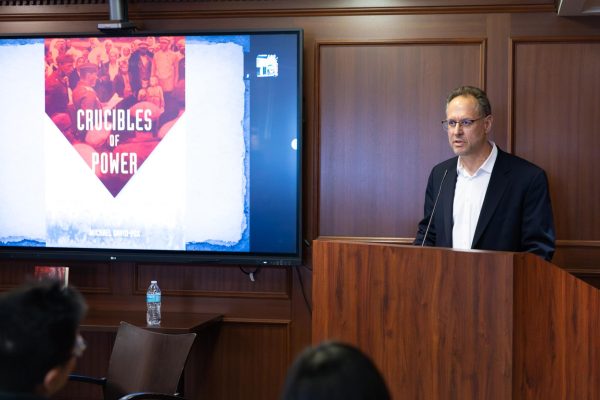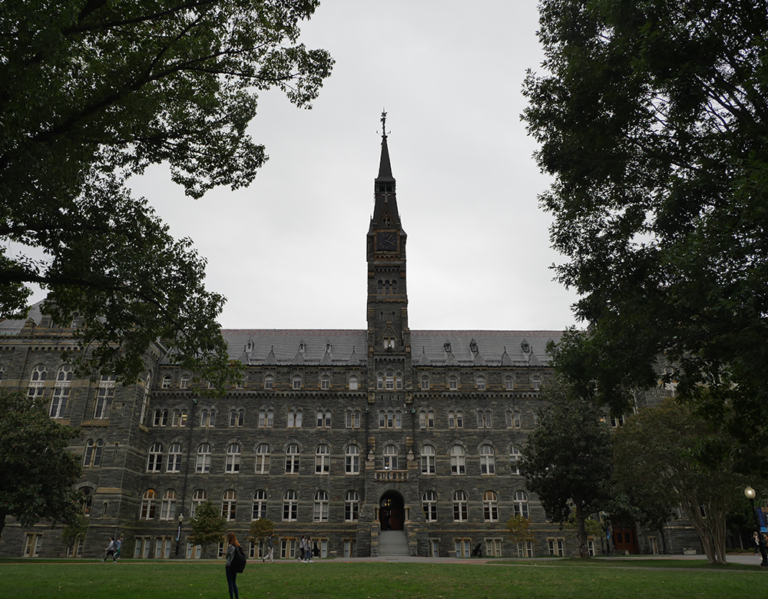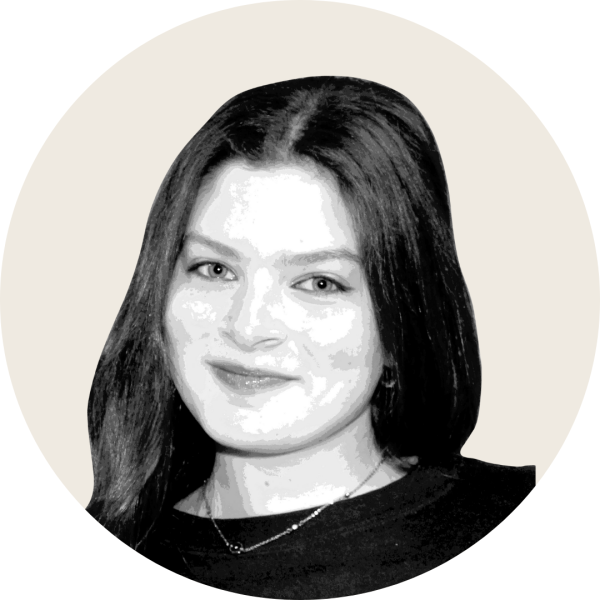A Georgetown University School of Foreign Service (SFS) professor presented his newly published book about the Eastern front during World War II at an event Feb. 13.
Michael David-Fox, the director of the Center for Eurasian, Russian and East European Studies (CERES), a department within the SFS, published “Crucibles of Power: Smolensk under Stalinist and Nazi Rule,” which explores the impact of power relations on residents of the Smolensk region. Smolensk, currently a part of western Russia, saw immense fighting and shifts in power between Nazi Germany and the Soviet Union during World War II.
David-Fox said his research for the book surveyed the bulk of the Smolensk Archive, the archive of the region’s communist party.
“This Smolensk archive was extremely valuable for several generations of U.S. historians of the Soviet Union, recreating that form of study,” David-Fox said at the event. “But it was very fragmented, only about 1% of the materials that had been transported went on to Munich and Frankfurt.”
“That was my original idea for the book, to look at the other 99%,” he added.

David-Fox said he took a multifaceted approach to his analysis, including examining local and regional history, emerging grassroots movements, linguistics and the overarching tensions between the Soviet Union and Nazi Germany.
“Many years of occupation, World War II, or the Holocaust, or the German occupation regime — I tried to leverage the insights that could be gained from looking at all of them as they interact, all those fields as they interacted,” David-Fox said.
David-Fox added that the book provides a richer understanding of the region by tracing the lives of individual people.
“I began to think more about how regimes or systems, which is the way the Nazi-Soviet comparison traditionally worked, limit our understanding of those two systems of power because they can’t fully capture power dynamics as they’re manifested in the lives of local and regional actors,” David-Fox said.
David-Fox said the book examines how past experience under Stalin in the 1930s informed individuals’ actions during German occupation, citing Boris Menshagin, the mayor of Smolensk, as an example.
“And ultimately, Menchagin justified, I think even to himself, serving Berlin in precisely the same kind of moralistic term he used to justify serving Moscow,” David-Fox said. “Under both regimes, he carried a public position of local prominence.”
Boris Menchagin, David-Fox said, gained local recognition in the Stalinist era by saving the lives of local professionals by serving as their defense attorney during their trials in the Great Terror of 1937, a violent campaign targeting suspected threats to the Communist Party.
David-Fox said the book explores the overlap of multiple levels of power —– local, regional and central — to understand the lived experience of residents of Smolensk, including how the Soviet Union’s expectations for the war clashed with local social structures.
“The Soviets were a shockingly weak underground,” he said at the event. “That explains a lot about the Soviet system, because they put intense pressure on those district and regional levels to fulfill raid outposts, to fulfill campaigns, to commit violence, but they had very few levels, and so they tended to be very heavy-handed, because they didn’t have the fine instruments of power.”
Charles King, a professor of international affairs and government who moderated the event, said the impact of World War II is frequently downplayed in the study of the Soviet Union.
“The second big contribution here is recentering the Second World War experience in how we talk about Russia, how we talk about the Soviet Union, both as a matter of historiography and as a matter of populism,” King said at the event.
Greg Doty (GRD ’26), a CERES master’s student who attended the event, said the biographical focus of the book animates the historical analysis.
“It was a very interesting book, extremely well written, very narrative,” Doty told The Hoya. “So it’s really more engaging than a dry history book would be, because it’s a lot of biographical information about these people.”
David-Fox said the biographical focus allowed him to relate his research to contemporary Smolensk, both in light of the collapse of the Soviet Union and the current Russia-Ukraine war.
“So that was the idea — how am I going to trace this down to the present day? And I do it through the lives of the main characters, which allows me to kind of bring it down to the war in the present day,” David-Fox said.
Nancy Britten contributed to reporting.



















